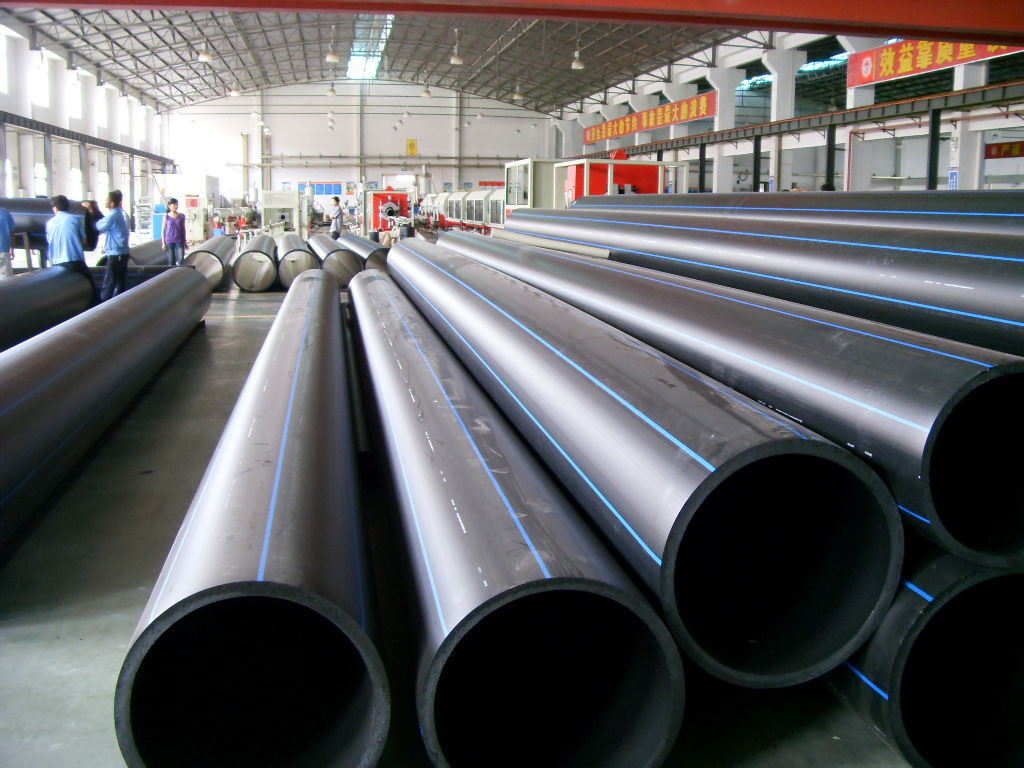Application of High Density Polyethylene (HDPE) Pipes and Fittings
Application of High Density Polyethylene (HDPE) Pipes and Fittings
Because HDPE pipes have these advantages, they can be widely used in the following fields:
1. Urban water supply: HDPE pipes have comprehensive advantages such as safety, sanitation, and convenient construction, and have become an ideal pipe for urban water supply.
2. Natural gas and gas pipelines: Due to a series of advantages such as reliable connection, stable performance, easy construction and corrosion resistance, HDPE pipelines have become the choice for medium and low pressure natural gas pipelines.
3. Food and chemical fields: HDPE pipes have unique chemical resistance and can be used for the transportation or discharge of various acid, alkali and salt solutions, with long service life and low cost and maintenance costs.
4. Ore sand and mud transportation: The wear resistance of HDPE pipes is 4 times that of steel pipes, and can be widely used for conveying ore sand, fly ash in power plants, and mud for river dredging.
5. Replacement of cement pipes, cast iron pipes and steel pipes: For the renovation of old pipes such as cement pipes and cast iron pipes originally laid in the city, HDPE pipes can be directly inserted into the old pipes for replacement without excavating a large area. The cost is low, the construction time is short, and it is especially suitable for pipeline reconstruction in the old city.
6. landscaping pipe network: landscaping requires a large number of water pipelines, and HDPE pipes have low cost and are worthy of vigorous promotion.
7. PE pipes can also be widely used in other fields, such as electricity, communication jackets, farmland irrigation, siphon drainage, landfills, geothermal air conditioning, deep sea aquaculture, buried fire pipelines, etc.

Beneficial properties of DEF HDPE piping systems include:
1. Leak-free Fused Joints: Fused joints eliminate potential leak points and reduce installation time. The heat-fused joints are as strong as the pipes themselves, leading to long-term, leak-free operation with little-to-no maintenance required.
2. Chemical Resistance: chemicals will not leach from the piping material into the water. HDPE pipes are safe for potable water applications. HPDE pipe will not corrode or tuberculate, maintaining flow velocities over the life span of the system.
3. Durability and Flexibility: Unlike more brittle piping materials such as PVC and ductile iron, HDPE pipe is a more durable and flexible pipe material with a bend radius up to 20 times the pipe diameter.
4. Extreme Surge Tolerance: HDPE pipes are the most resistant to surge and fatigue of any potable water piping system. HDPE pipe can handle occasional surges up to 2 times its’ pressure rating, and recurring surges up to 1.5 times its’ pressure rating.
5. Temperature Resistance: HDPE pipe can be used under temperatures ranging from -40°F to 140°F in many different environments. Also can be repeated freeze or thaw without any damage.
6. Installation: With its’ narrower trench widths and its ability to be installed with trench-less technologies (directional drilling, pipe bursting, slip-lining, and compression fit lining), trench-less installations reduce disturbances to surrounding environments and greatly reduce the amount of construction restoration, leading to a cost savings up to 65%.
